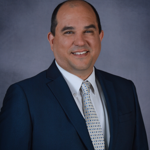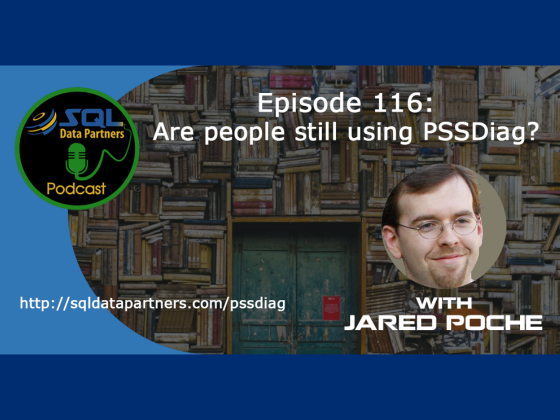Are people still using PSSDiag?
If you have ever worked with Microsoft support, you probably came across the PssDiag tool they use to collect information about your environment. My experience with the tool is it always seemed, well–a bit clunky. Now, it does collect lots of information and seemed to be a bit overwhelming when I was first a DBA. Fast forward a few years and PssDiag was not a tool I use anymore and was not sure if anyone outside of Microsoft was using it. I run into Jared Poche in Raleigh and he mentions he really likes the tool and mentions some of the improvements they have made over the years. Well, you can guess where this is heading.
We talk with Jared about his experience with the tool and cover some of the basics about how you might go about using this tool in your environment. There are two pieces to this tool, the first is the utility that collects the data and the second is the reporting piece SQL Nexus.
Are you using PssDiag? Let us know in the comments below.
Episode Quotes
“It’s a really good tool in that it captures data from a lot of different sources and you tend not to miss much with PSSDIAG.”
“It is absolutely the go to tool for Microsoft.”
“Again using PSSDIAG and the Nexus will give you very visible data.”
“My biggest concern with PSSDIAG is people being too aggressive with the data they are trying to return from it.”
“Running it over the network is a really bad idea.”
Listen to Learn
02:47 What is PSSDIAG? What it runs and its usage?
04:54 Is Microsoft’s PSSDIAG and the publicly available different?
05:38 Using PSSDIAG in a small shop or in a large shop.
06:51 SQL Nexus
08:19 Improvements on PSSDIAG
09:42 How often Jared uses PSSDIAG?
10:13 Compelling reasons why to use PSSDIAG
16:04 Hand off point of getting information about the system, transitioning to smaller data set
20:52 PSSDIAG or DMVs? Which is a great place to start with baselining
24:12 Other common parameters in PSSDIAG, light capture vs. detailed capture
28:14 Tips and suggestions for starters
32:02 SQL Family questions
Our Guest
Jared Poche
Jared Poché began working with SQL Server as an instructor for certification classes and has a passion for teaching and performance troubleshooting. Jared spent 10 years providing customer support at Microsoft, most recently as a Sr. Support Escalation Engineer. He is currently a database engineer working in Morrisville, NC and is leveraging his extensive knowledge to develop online coursework for SQL Server.
Meet the Hosts

Carlos Chacon
With more than 10 years of working with SQL Server, Carlos helps businesses ensure their SQL Server environments meet their users’ expectations. He can provide insights on performance, migrations, and disaster recovery. He is also active in the SQL Server community and regularly speaks at user group meetings and conferences. He helps support the free database monitoring tool found at databasehealth.com and provides training through SQL Trail events.

Eugene Meidinger
Eugene works as an independent BI consultant and Pluralsight author, specializing in Power BI and the Azure Data Platform. He has been working with data for over 8 years and speaks regularly at user groups and conferences. He also helps run the GroupBy online conference.

Kevin Feasel
Kevin is a Microsoft Data Platform MVP and proprietor of Catallaxy Services, LLC, where he specializes in T-SQL development, machine learning, and pulling rabbits out of hats on demand. He is the lead contributor to Curated SQL, president of the Triangle Area SQL Server Users Group, and author of the books PolyBase Revealed (Apress, 2020) and Finding Ghosts in Your Data: Anomaly Detection Techniques with Examples in Python (Apress, 2022). A resident of Durham, North Carolina, he can be found cycling the trails along the triangle whenever the weather's nice enough.
Want to Submit Some Feedback?
Did we miss something or not quite get it right? Want to be a guest or suggest a guest/topic for the podcast?
